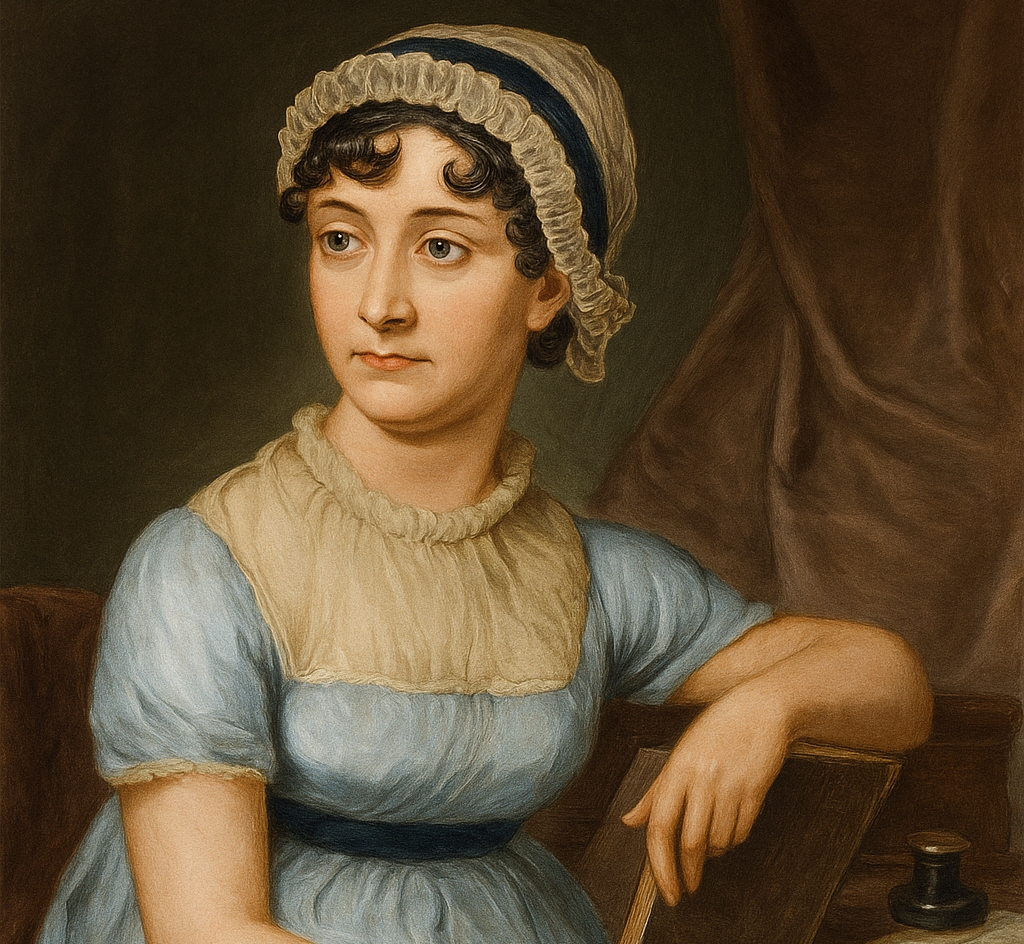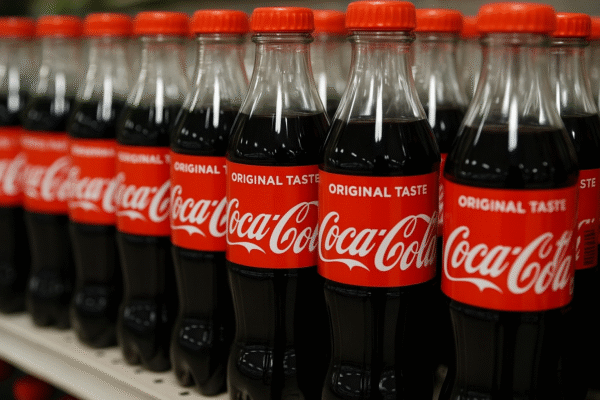How an American Brand Became a British Icon: The Remarkable Story of Heinz
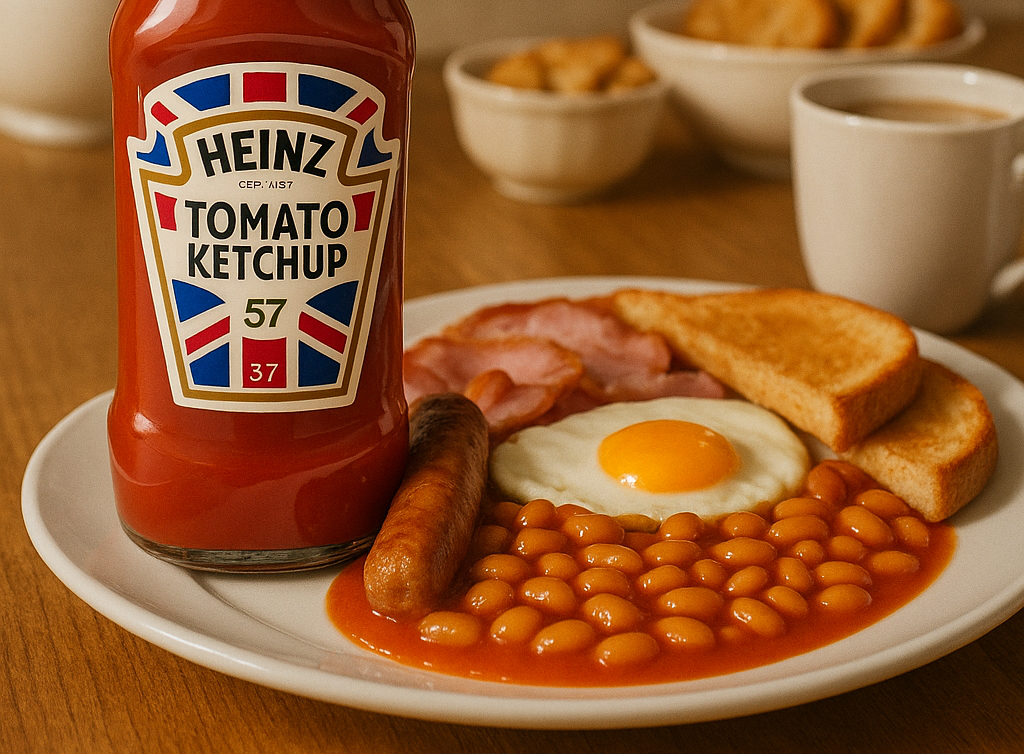
[English Breakfast & Heinz Tomato Ketchup – AI Generated Image]
When most Britons reach for a can of baked beans or squeeze ketchup onto their chips, they’re not thinking about American enterprise or international commerce. They’re simply enjoying products that have become as quintessentially British as tea and fish and chips. Yet the story of how Heinz—a company founded in Pittsburgh, Pennsylvania—became one of Britain’s most beloved brands is a fascinating tale of cultural integration, clever marketing, and the power of authenticity in building consumer loyalty.
Heinz products have become deeply embedded in British culture and breakfast traditions
The Transatlantic Journey Begins
In 1886, Henry J. Heinz arrived in London with a suitcase full of bottled tomato ketchup and a dream of international expansion. The 42-year-old American entrepreneur had been running his condiment business for 17 years, but he knew that breaking into the British market would be crucial for his company’s growth. His first stop was Fortnum & Mason, the luxury department store in Piccadilly that served the British elite.
What happened next would change British food culture forever. The head of purchasing at Fortnum & Mason sampled Heinz’s products and immediately bought the entire stock without hesitation. This moment marked the beginning of what would become one of the most successful examples of an American brand integrating into British culture. Initially, Heinz products were positioned as luxury items. A can of baked beans cost around £2 in today’s money—roughly £170 by current standards. They were marketed to the wealthy and shipped across the British Empire to military officers and colonial administrators. But Henry Heinz had bigger ambitions than serving just the elite.
From Luxury to Necessity: The Democratic Revolution
The genius of Heinz’s British strategy lay in its democratic approach to food. Rather than remaining a luxury brand, Heinz actively promoted its products as essential sustenance for working-class families. This was revolutionary thinking for the time, as most food manufacturers focused on either the wealthy or the poor, but rarely both.
The company’s breakthrough came during the Industrial Revolution, when factory workers needed nutritious, convenient meals that could fuel them through long, demanding shifts. Heinz baked beans, with their combination of protein, carbohydrates, and tomato sauce, were perfectly suited to this need. By 1905, Heinz had opened its first UK factory in Peckham, south London, followed by a larger facility in Harlesden in 1919.
The transformation from luxury import to mass-market staple was dramatic. By 1932, the price of a can of beans had dropped to just two pence. This price democratization meant that Heinz products became accessible to all social classes, fundamentally changing British eating habits.
Wartime Validation and Cultural Cement
World War II proved to be the ultimate test of Heinz’s integration into British society. Between 1941 and 1948, the Ministry of Food classified Heinz Baked Beans as an “essential food” under the wartime rationing system. This official recognition was more than just bureaucratic convenience—it was a stamp of approval that Heinz had become integral to British nutrition and morale.
During the war, Heinz products were advertised as “a splendid food to preserve the stamina of the Nation”. The company’s ability to maintain production and supply during one of Britain’s most challenging periods cemented its reputation as a reliable, trustworthy brand that the nation could depend on.
The Power of Iconic Advertising
While wartime validation was crucial, it was brilliant advertising that truly made Heinz a British cultural icon. In 1967, Maurice Drake, a creative director at Young & Rubicam, created what would become one of the most memorable advertising slogans in British history: “Beanz Meanz Heinz”.
The slogan wasn’t born in a sterile boardroom but in The Victoria pub in Mornington Crescent, where Drake and his team had gone for beer and sandwiches. This quintessentially British origin story—a great idea born in a pub—perfectly encapsulated how an American brand had become thoroughly British in its sensibilities.
The “Beanz Meanz Heinz” campaign ran for three decades and was voted the most memorable advertising slogan of all time in 2003. It became so embedded in British culture that when the company attempted to phase it out, 90,000 consumers voted to retain it during a “Can it or keep it” campaign.
In June 2019, global music superstar Ed Sheeran—whose devotion to Heinz ketchup even includes a logo tattoo on his arm—pitched his own idea for a Heinz advert via Instagram DM. The resulting one-minute TV commercial, which debuted during Coronation Street, features Sheeran dining in a “super posh” restaurant before dramatically pulling a bottle of Heinz from his bag to complete his gourmet meal: “So that’s my idea—do you want to do it?” The spot ends with the playful tagline, “This is what happens when Ed Sheeran writes the Heinz ad.” To celebrate National Ketchup Day, Heinz also released limited-edition “Edchup” bottles bearing a tomato caricature of Sheeran, now collectors’ items among fans.
The Full English Breakfast: A Cultural Cornerstone
Perhaps no single dish better illustrates Heinz’s integration into British culture than the Full English Breakfast. While bacon, eggs, and sausages had been breakfast staples for centuries, baked beans didn’t become a standard component until the 20th century. Yet today, it’s almost impossible to imagine a proper fry-up without them.
The inclusion of Heinz baked beans in the Full English Breakfast represents more than just culinary evolution—it’s a symbol of how foreign foods can become so thoroughly integrated into national culture that their origins are forgotten. Britons consume over 2 million cans of baked beans daily, more than the rest of the world combined.
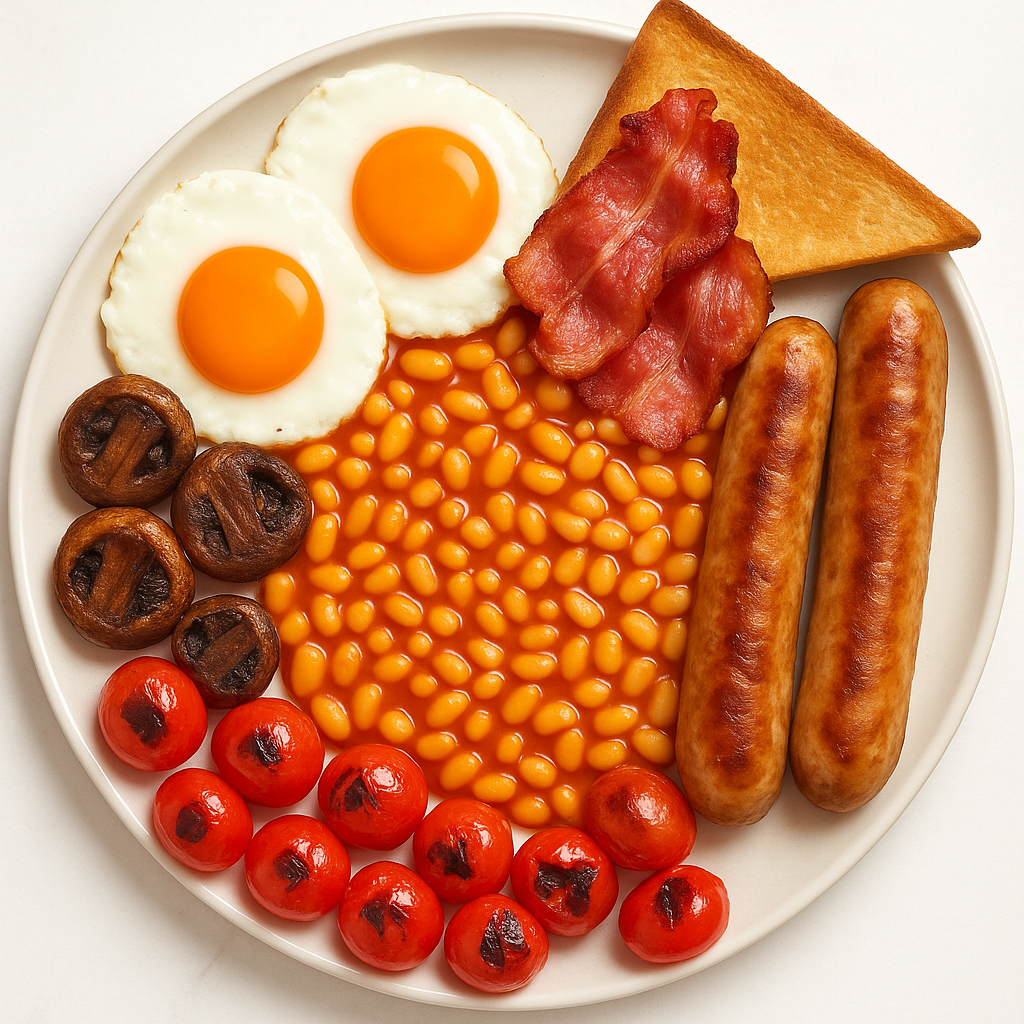
[English Breakfast – AI Generated Image]
Royal Recognition and National Identity
The depth of Heinz’s integration into British culture is perhaps best demonstrated by its relationship with the British Royal Family. The company has held a Royal Warrant since the early 20th century, allowing it to display the royal coat of arms on its products. This wasn’t just a marketing gimmick—it represented official recognition that Heinz had become part of the fabric of British life.
Queen Elizabeth II herself visited the Heinz factory in Wigan in 2009 to mark its 50th anniversary. The late Queen’s connection to the brand was so strong that when she died in 2022, Heinz was among 800 companies that had to reapply for their Royal Warrants under King Charles III.
The royal connection extended beyond official recognition. Both Princess Diana and Queen Camilla were known to be fans of beans on toast. During the 2022 Platinum Jubilee celebrations, Heinz released limited-edition products renamed “HM Sauce” and “Salad Queen” to honor the monarch.
Economic Impact and Local Integration
Heinz’s commitment to British manufacturing has been crucial to its cultural integration. The company’s Kitt Green factory in Wigan, which opened in 1959, is now the largest food processing plant in Europe. It produces over 1.3 billion cans of food annually and employs around 850 people.
The factory’s economic impact extends far beyond employment. It has been a cornerstone of the local economy for decades, with generations of families working there. This deep local integration has created emotional bonds that go beyond mere brand loyalty—Heinz has become part of the community fabric in ways that few multinational corporations achieve.
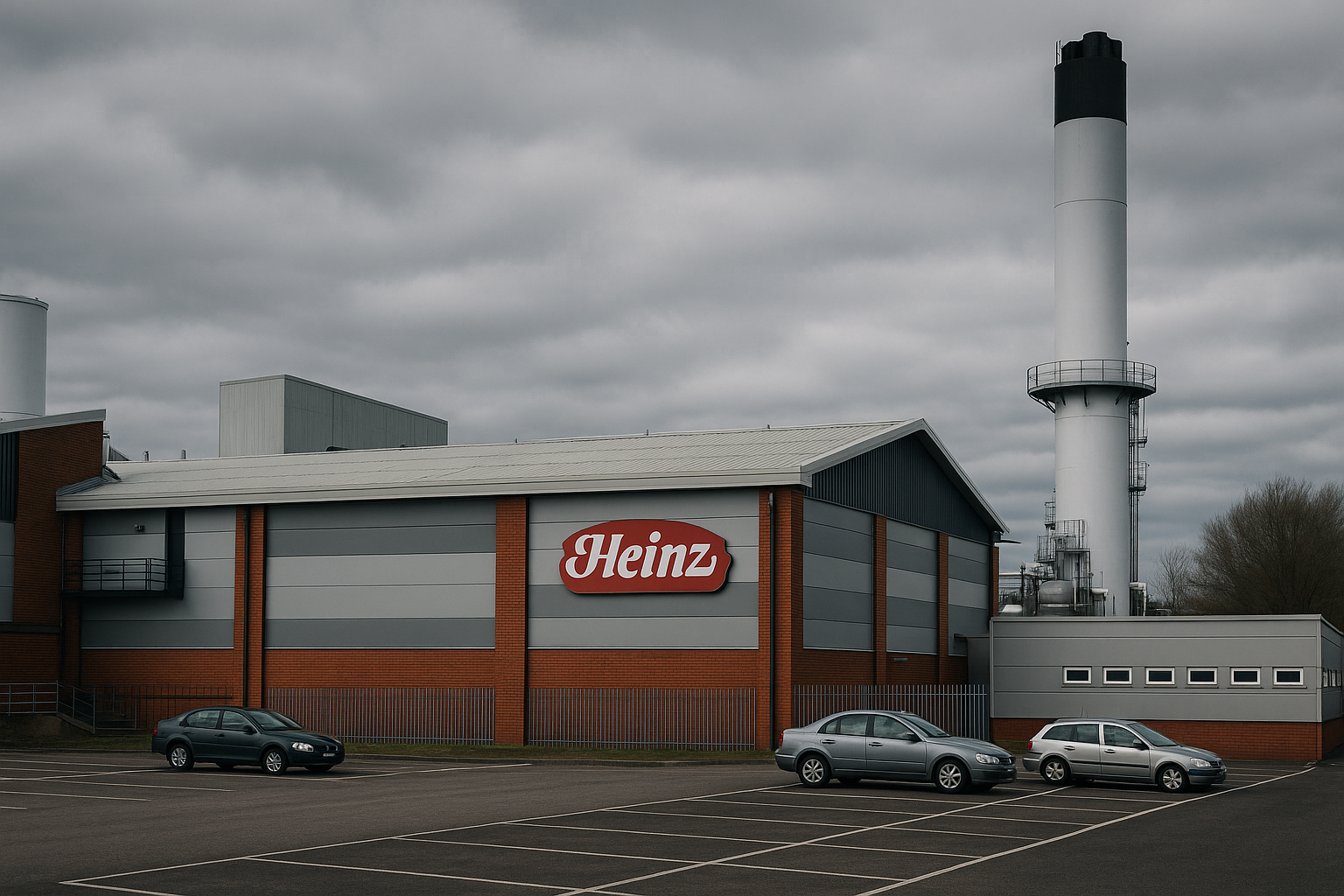
[A Heinz Factory – AI Generated Image]
The Challenge of Maintaining Relevance
Despite its remarkable success, Heinz has faced challenges in maintaining its position as a British cultural icon. Recent years have seen declining sales in some categories, with ketchup sales falling 13% in 2017 and beans sales dropping 5%. The rise of discount retailers and changing consumer preferences have put pressure on traditional branded products.
However, Heinz has adapted by embracing its cultural status rather than fighting it. The company has invested heavily in understanding what “Britishness” means to different generations, working with cultural consultants to ensure its messaging remains relevant to Gen Z and Millennials while maintaining its nostalgic appeal.
The Ultimate Cultural Integration
Today, Heinz represents one of the most successful examples of cultural assimilation in corporate history. Despite being an American company, it is “inextricably linked with British history and culture to the extent that it is believed to be a U.K. company”. This level of integration is rare in the globalized economy, where brands often struggle to achieve meaningful local relevance.
The company’s success stems from several factors: its early commitment to local manufacturing, its understanding of British tastes and preferences, its willingness to adapt products for local palates, and most importantly, its patience in building long-term cultural relationships rather than seeking quick profits.
A Model for Global Brands
The Heinz story offers valuable lessons for any brand seeking to achieve genuine cultural integration. It demonstrates that successful localization requires more than just translation or surface-level adaptation—it demands a deep understanding of local culture, values, and social dynamics.
Heinz didn’t simply export American products to Britain; it created British products that happened to be made by an American company. This distinction is crucial and explains why Heinz succeeded where many other international brands have failed to achieve similar cultural penetration.
The brand’s journey from American import to British icon shows how authenticity, consistency, and cultural sensitivity can create bonds that transcend national boundaries. In a world where consumers increasingly value local relevance over global uniformity, the Heinz story remains a masterclass in successful cultural integration.
As Britain continues to evolve and define what it means to be British in the 21st century, Heinz has proven its ability to adapt while maintaining its core identity. Whether it’s launching loyalty programs like “The 57 Club” or creating limited-edition products for royal celebrations, the brand continues to find ways to remain relevant to new generations while honoring its deep cultural roots.
The story of Heinz in Britain is ultimately a story about the power of patience, authenticity, and respect for local culture. It shows that when done right, globalization doesn’t have to mean cultural homogenization—it can create new forms of cultural identity that enrich rather than diminish local traditions.
references:
BBC News: “Ed Sheeran creates Heinz ketchup advert — watch the ad” (2019)
The Guardian: “Beanz Meanz Heinz: the history of a British icon” (2019)
Financial Times: “How Heinz became a British staple” (2021)
Noise11: “Ed Sheeran’s Heinz Tomato Ketchup advert” (2019)
The Telegraph: “Beanz Meanz Heinz: The story behind Britain’s most iconic slogan” (2017)

